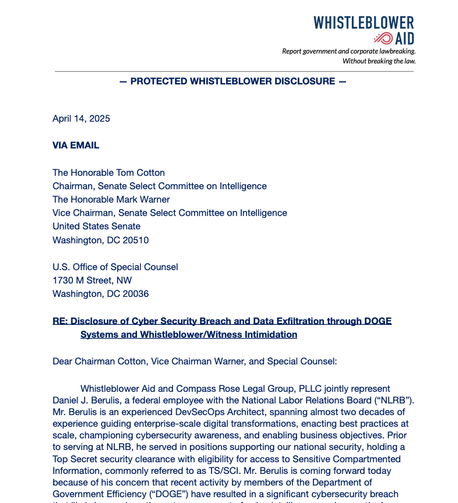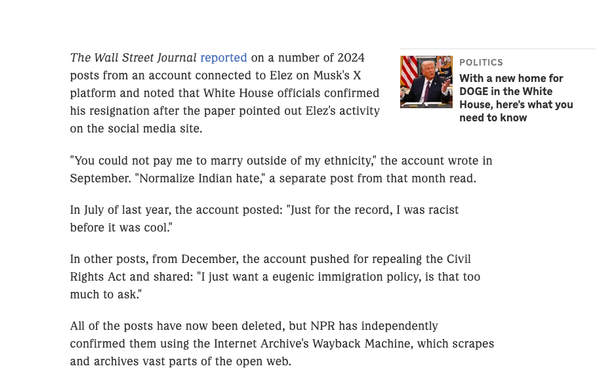I published a follow-up on NPR's scoop last week about a whistleblower at the National Labor Relations Board (NLRB), who alleges DOGE created super admin accounts (w/ no logging) at NLRB and transferred ~10GB worth of data from the agency's case files.
The story includes an interview with the whistleblower -- NLRB security architect Daniel Berulis -- and examines the technical claims in his report to lawmakers. He's taking some paid leave for now, noting that the same day the NPR story ran, the NLRB removed administrative rights for its IT staff and almost everyone else at the agency.
The backstory is that both Amazon and Musk’s SpaceX have been suing the NLRB over complaints the agency filed in disputes about workers’ rights and union organizing, arguing that the NLRB’s very existence is unconstitutional. On March 5, a U.S. appeals court unanimously rejected Musk’s claim that the NLRB’s structure somehow violates the Constitution.
Here's the lede:
"A security architect with the National Labor Relations Board (NLRB) alleges that employees from Elon Musk‘s Department of Government Efficiency (DOGE) transferred gigabytes of sensitive data from agency case files in early March, using short-lived accounts configured to leave few traces of network activity. The NLRB whistleblower said the unusual large data outflows coincided with multiple blocked login attempts from an Internet address in Russia that tried to use valid credentials for a newly-created DOGE user account."
https://krebsonsecurity.com/2025/04/whistleblower-doge-siphoned-nlrb-case-data/






